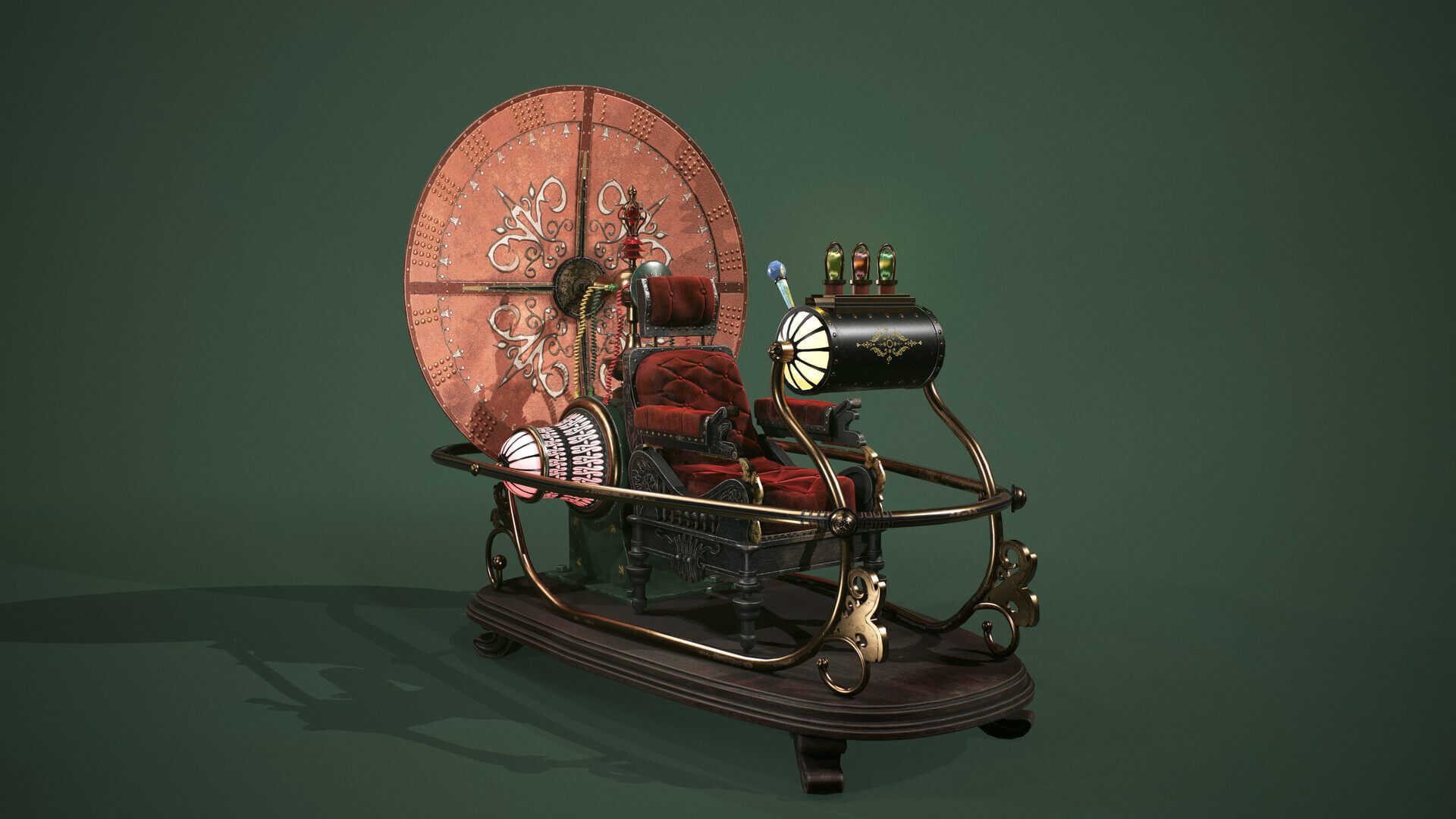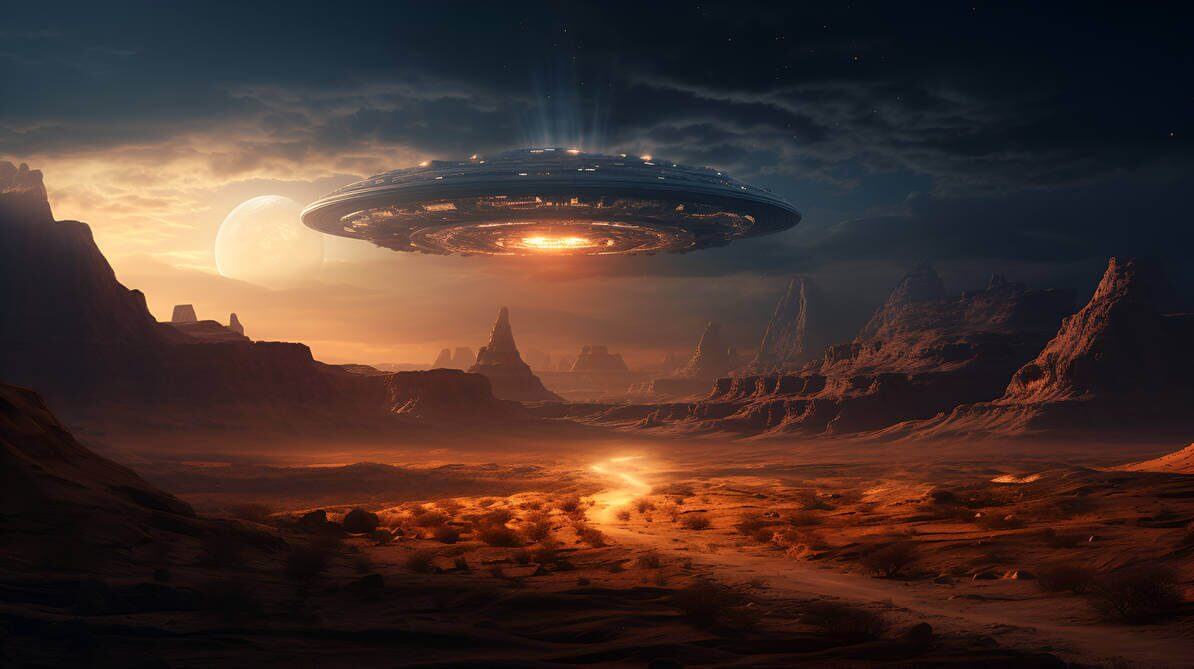
I Didn’t Believe In Time Traveller’s Until I Saw This!
Time travel sounded impossible—until one shocking interview turned everything upside down.
Time travel has long been a topic of fascination, weaving its way through science fiction novels, blockbuster movies, and philosophical debates. For many, the idea of moving through time remains a fantasy — an impossibility bound by the limits of physics and common sense. Yet, recent developments in theoretical physics, real-world experiments, and even some startling eyewitness claims have challenged that perspective. Today, the concept of time travel is inching closer to scientific plausibility, inviting both sceptics and believers to reconsider what we understand about time itself.
This article explores the scientific foundations of time travel, paradoxes and challenges involved, reports of possible time travellers, and the future prospects of this mind-bending phenomenon.
Paul Amadeus Dienach Claimed He Spent A Year In 3906 – This Is What He Saw
The Physics Behind Time Travel: Understanding Time Dilation
Albert Einstein’s revolutionary theories of special and general relativity changed how humanity views space and time. One of their most startling implications is that time is not a constant, but relative — it can stretch and compress depending on factors like speed and gravity.
Special Relativity and Moving Forward in Time
According to Einstein’s special relativity, the faster an object moves relative to another, the slower time passes for it. This effect, called time dilation, means that astronauts travelling near the speed of light could theoretically experience time much more slowly than people on Earth, effectively travelling into the future.
In 1971, the Hafele-Keating experiment famously demonstrated time dilation. Atomic clocks aboard commercial flights were compared with identical clocks on the ground. The clocks on the planes showed a tiny but measurable lag, confirming that time dilation is real. Similarly, astronauts aboard the International Space Station experience a tiny but measurable slowdown in their aging compared to those on Earth, effectively experiencing time travel into the future.
Gravity’s Role: General Relativity and Gravitational Time Dilation
Einstein’s general relativity further reveals that gravity also affects time. Time passes more slowly in stronger gravitational fields. Near massive objects like black holes, time dilation becomes extreme, theoretically allowing someone close to such an object to experience time at a drastically slower rate compared to an observer far away.
This means that if a person were to orbit near a black hole (and survive!), they could potentially travel far into the future relative to the rest of the universe. Though purely theoretical for now, these concepts highlight possible mechanisms for time travel grounded in the nature of space-time itself.
The Difficulties of Traveling Backward: Paradoxes and Theoretical Challenges
While time travel to the future has scientific backing, traveling backward presents profound challenges, mostly due to paradoxes. The most famous is the grandfather paradox, which asks: what happens if a time traveller goes back and prevents their grandparents from meeting? Such an action would prevent the traveller’s own existence, creating a logical contradiction.
Possible Solutions: Closed Time-Like Curves and Quantum Mechanics
Despite these paradoxes, recent theoretical work suggests backward time travel may not be impossible. Physicists have explored the idea of closed time like curves — loops in space-time that could allow time travel without contradictions.
One notable contribution comes from physicist Federico Gavassino, who proposed a model combining thermodynamics and quantum mechanics. His theory uses entropy—the measure of disorder in a system—to impose constraints that prevent paradoxes from occurring. In this way, time loops could exist while maintaining logical consistency.
If such theories hold, they would revolutionize our understanding of causality and open new doors for time travel research. You can read more about these advances in this recent study on paradox resolution.
Strange Reports and Alleged Sightings of Time Travellers
Beyond theoretical physics, there is a growing body of anecdotal reports and claims that time travellers might already exist among us. Some of the most compelling discussions have occurred in popular media.
The Joe Rogan Experience and the Mysterious Guest
A notable example was a guest on the Joe Rogan Experience podcast, who shared photographic evidence and unsettling predictions suggesting the existence of time travellers. The guest described images containing unexplained anomalies—figures or technology that did not fit the era in which the photos were taken.
Some of the predictions the guest made years ago have since come true, further fuelling speculation and debate.
Scepticism and Critical Examination
Sceptics argue that such evidence is often misinterpreted, fabricated, or the result of coincidence. Nevertheless, the sheer volume and consistency of these reports have piqued the curiosity of both the public and some researchers.
Whether real or not, these accounts highlight the cultural fascination with the possibility that time travellers could be among us, perhaps influencing events in subtle ways.
Scientific Experiments: Evidence Supporting Aspects of Time Travel
While anecdotal evidence remains controversial, scientific experiments have confirmed key aspects of time travel.
Atomic Clocks and High-Speed Travel
Experiments with atomic clocks on airplanes and satellites have verified that time dilation occurs as predicted. The precise measurement of time passing differently depending on speed and gravity confirms the flexibility of time. You can find a detailed explanation of these experiments in this LADbible article on time dilation.
Wormholes and Black Holes: Theoretical Gateways
Physicists have theorized about wormholes—hypothetical tunnels connecting different points in space-time. If stable and traversable, wormholes could potentially allow travel between different times.
Black holes, especially rotating ones, may warp space-time to create closed time like curves, theoretically enabling backward time travel. These remain theoretical constructs, with no experimental evidence yet, but they offer promising frameworks for future study.
Quantum Mechanics and Time’s Mysteries
Quantum physics challenges classical ideas about time. Phenomena like quantum entanglement and superposition reveal that particles can instantaneously affect each other across distances, seemingly defying conventional temporal order.
Some interpretations of quantum mechanics suggest that cause and effect might not always be linear, potentially allowing for retrocausality, where an effect precedes its cause.
Cultural Influence: Time Travel in Popular Imagination
Time travel stories have deeply influenced culture, exploring themes of destiny, choice, and consequence. From H.G. Wells’s The Time Machine to modern blockbusters like Interstellar, these narratives inspire curiosity and philosophical reflection.
The enduring appeal of time travel keeps the public engaged and encourages scientific inquiry.
The Road Ahead: Future Research and Possibilities
Advancements in quantum computing, particle physics, and cosmology promise to deepen our understanding of time. Though controlled time travel remains theoretical, ongoing research may one day unlock its secrets.
Scientists stress the need for rigorous evidence and careful interpretation, but the door remains open to astonishing discoveries.
Conclusion
Time travel is no longer confined to fiction. Verified experiments demonstrate that moving forward in time is a physical reality, while new theories propose solutions to backward travel paradoxes. Anecdotal reports keep the debate lively, blurring the line between science and speculation.
Those interested in exploring these ideas further can consult scientific discussions on paradox resolution, relativity, and experimental evidence, which provide valuable insights into this evolving field.
As humanity advances, time may prove far more flexible than imagined, and perhaps time travellers already walk among us, or await discovery.
 Watch This:
Watch This:
For those intrigued by these astonishing claims, be sure to watch the Joe Rogan Experience episode where the guest shares jaw-dropping evidence and predictions about time travellers—it’s a must-see for anyone curious about what might be hidden in our timeline.
* * *
You’ll Love This One …
This Man Leaked That He Was Part of A US Program That Involved Time Travel

In the shadowy world of military black projects, few names spark as much controversy as Al Bielek. He’s the man who claimed he was not only involved in the mysterious Philadelphia Experiment, but that he was later part of secret U.S. programs that explored time travel, teleportation, and contact with alien civilizations.
Most mainstream scientists dismiss these ideas as delusion. But others argue that Bielek’s story may contain hidden truths buried under layers of disinformation, memory tampering, and classified government research.
So who exactly was Al Bielek, and what did he really claim?
* * *
READ NEXT: 10 Photos That Can Prove That Time Travel Exists
Trending Now: A ‘Time Traveller’ Says He Is The Only Survivor On Earth In 2028: Showing Videos & Photos
Stay Connected: Follow us on Telegram for the latest shocking discoveries and exclusive stories!
Got thoughts or tips? Drop a comment below — we love hearing from you!

If you could change one moment in time, what would it be?